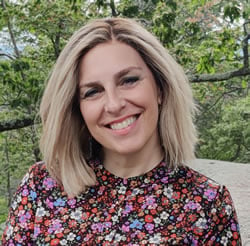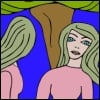Dear Reader,
Did you notice that the days are getting shorter and the nights darker and colder? The winter season and the shortest daytime hours is already, or will soon be, upon us.
In this week’s Torah portion, we are introduced to two of our matriarchs, the sisters Rachel and Leah.
Rachel is a beautiful woman, the woman whom our patriarch Yaakov instantly loves. She is described as “beautiful and shapely,” reflecting her external as well as internal beauty, her sterling qualities and righteous nature.
The mystics explain that Rachel personifies the perfect individual. Her name, Rachel, means “ewe,” like the sheep of her father that she tended, animals characterized by their pure white color and serene, loveable nature.
Leah’s name, on the other hand, means “one who is weary.” Leah is described as the weak-eyed sister, weakened from her incessant tears and anxiety, worried that she would be forced to marry Jacob’s wicked twin brother, Esau. Even in her eventual marriage to Jacob, Leah personifies a more complex individual who is struggling with the darker forces of her being, facing an exhausting, perpetual tug of war.
Though Leah was a fully righteous individual, she personifies the struggle, the trials, and challenges. Nevertheless, although Rachel was the beautiful and perfect individual, favored by Jacob, Leah’s path ultimately, in some ways, led to greater heights.
It was Leah who mothered the majority of the tribes of Israel. She lived with Jacob for the greater part of their lives, while Rachel’s life was cut prematurely short. Leah was buried at Jacob’s side as his partner in the Cave of Machpelah in Hebron for all eternity, while Rachel was buried miles away, alongside the road outside of Bethlehelm.
As the bright rays of the summer disappear, and with them the colorful and beautiful foliage, the darkness of night and the desolation of winter set in and bring us their heavy weariness. As the ground freezes over and the earth becomes desolate, we don’t witness the rejuvenation process beneath the surface.
Leah represents those many winter moments in our own lives, when we are confronted with coldness, challenges, and darkness. Only in retrospect, looking back, can we discern how these challenges ultimately have strengthened us to become stronger, greater people.
Ultimately, too, when we victoriously face our own life’s struggles, we emerge, finally, as a greater people. Each struggle that we confront and every small victory that we win become the sweetest and most beautiful offerings in G‑d’s eyes.
The tale of the two sisters teaches us that we have the ability to find ourselves, not only in the sunny, warm seasons of our lives, but even in the harsh winters.
And through finding our own inner light within the wearying darkness, we reveal our greatest selves.





